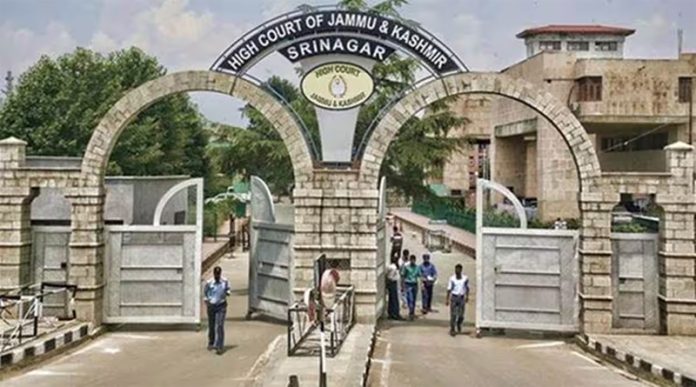Excelsior Correspondent
JAMMU, May 10: The High Court of Jammu & Kashmir and Ladakh has framed guidelines for AI-Assisted Translation of judgments into vernacular languages to be called as “J&K and Ladakh High Court AI-Assisted Translation of Judgments & Judicial records in Vernacular Languages Guidelines, 2023”.
A Monitoring Committee to aid and assist the AI-Assisted Legal Translation Advisory Committee of the High Court shall be framed for the implementation of this AI-Assisted Translation Project. The Committee comprising of at least 3 members shall be nominated by the AI-Assisted Legal Translation Advisory Committee of the High Court.
To implement the project, a separate cadre in the High Court, to be manned by a District Judge cadre officer with academic/linguistic inclinations, 2 posts of Joint Registrar (Translation), 1 for each wing of the High Court to be manned by an officer of a Civil Judge (Senior Division) rank with academic/linguistic inclinations, 2 posts of Chief Translators(1 for each wing), 4 Senior Translators (2 for each wing), 10 Translators ( 5 for each wing), in addition to the already available Translators, 2 System Assistants (1 for each wing) and 2 Class-IV employees (1 for each wing), shall be taken up with the Government.
However, pending creation of the separate cadre, the HC shall create a panel of retired Judicial Officers and retired Translators willing to work for translating the judgments under the project, on the remuneration to be paid as per the slab prescribed by Supreme Court Committee or Translation Advisory Committee of J&K and Ladakh HC or the Government while the Registrar (IT) shall act as Coordinator of AI-Assisted Translation Project of the High Court and shall monitor the progress of the AI-Assisted translation.
SUVAS or other such tools as may be decided by the AI-Assisted Legal Translation Advisory Committee of J&K and Ladakh High Court, shall be utilized for AI-Assisted translation of judgments/record. Registrar (Translation) shall be the Editor-in-Chief of the Translation Cadre whereas Joint Registrar (Translation)/Civil Judge (Senior Division) shall be Editor of the Translation for the Jammu/Srinagar wing of the HC.
The judgments for AI-Assisted translation shall be selected by the Monitoring Committee with the prior approval and guidance of the AI-Assisted Legal Translation Advisory Committee of the High Court. Though the priority for translation of judgments shall be decided by the Monitoring Committee with the prior approval of the AI-Assisted Legal Translation Advisory Committee of the HC but as a general rule, priority will be judgments of SC, judgments of HC, judgments of public importance, judgments covering large number of citizens and judgments affecting personal law issues.
To accomplish the project with accuracy and for seeking technical & financial support for achieving the goal of access to justice for all, Translation cadre shall collaborate with other Government Translators and Linguistic experts. Further, Translation Cadre shall make the judgments translated in vernacular languages, available to people to give them access to justice.
All the translated judgments shall be categorized subject-wise and kept available for general public. The copies of translated judgments shall also be made available to the parties to proceedings by e-mail for which database of e-mail of the parties will be kept updated. The translated copies shall also be forwarded to Government departments for proper understanding and implementation of the same.


